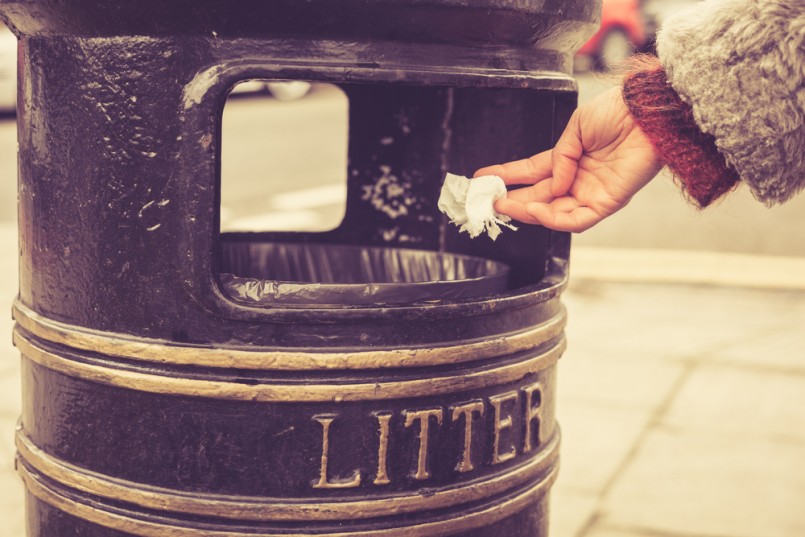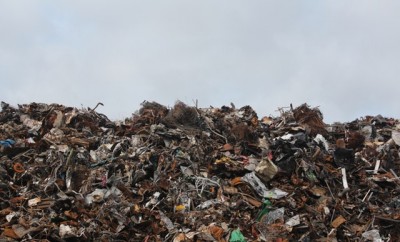Environment
10 easy steps to reduce your trash footprint

Image: Shutterstock/Lolostock
Living sustainably is all about reducing your carbon footprint and your impact on the earth. Most people are aware that our dependency on plastic and fossil fuels is leading to unprecedented climate change, but few people have the knowledge or desire to drastically cut their impact on this planet, including their trash footprint.
Disturbed by my own contribution to this problem, I decided to move towards a zero waste lifestyle. For the last two years, I have been drastically reducing the amount of garbage I send to landfill each week and learned many things along the path to zero waste. For example, I now take large reusable totes, small cotton produce bags, and mason jars to the grocery store and buy more food package-free. While it can seem daunting, this lifestyle is just a collection of tiny changes that have added up over time. It started with a few one time purchases, like a stainless steel water bottle, reusable cotton rounds, a stainless steel spork, and metal straws. It evolved to composting all of our food scraps, recycling, and reducing our trash output to a small plastic bag every other week.
My easiest steps towards sustainability are mostly related to food procurement, which I found to be enjoyable as I got into the habit. I shop at the farmers market, which is a fantastic source of high quality, package-free food. When I do shop at my local grocery stores, people often comment on my mason jars and cotton bags. These comments usually blossom into lovely conversations with people often inquiring how they can also reduce their trash footprint. There are many different ways to accomplish this, but below are some of my favorite steps to share about reducing your trash footprint.
10 easy steps to reduce your trash footprint
- Get to know your current trash footprint: When transitioning to a low waste lifestyle, it’s important to know what’s going to the landfill. Before making any major changes, simply observe what it is you are throwing away everyday. Don’t fret, just keep track. Do you get coffee every morning from a local coffee shop? Do you buy snacks from the vending machine at work everyday? Some trash is unavoidable and will always be in our lives. Lauren Singer, of Trash is for Tossers, suggests picking “low hanging fruit,” which simply means: start with easy changes.
- Always use reusable grocery bags: If you’re not already doing this, I’m silently judging you.
- Invest in reusable small produce bags: At every grocery store there are those little rolls of ultra thin plastic bags for your produce. People who put only one produce item in each plastic bag drive me insane. If you don’t eat the skin, why would you need to protect it with a plastic bag?! For those produce items you need bags for (apples, cucumbers, lettuce, etc.) you can simply make your own or purchase them.
- Visit the local thrift store or goodwill: For more than a year now, I have only purchased my clothes from local thrift and consignment stores. While it does take a little more effort to find good pieces, I find it to be a more frugal and sustainable practice than buying new clothes every season. At my local thrift and consignment stores, I’ve been able to find dresses by Ann Taylor, Calvin Klein, and a brown leather purse by Coach. By purchasing used clothing, no new clothing is making its way into the waste stream. Fast fashion has proven to be a detriment both to the environment and to the individuals forced into the hazardous sweatshops that make each garment. The documentary The True Cost gives an excellent overview of the various costs and factors involved in the clothing industry, and it provides me with a strong motive to follow this point.
- Use a reusable water bottle: These come in a variety of shapes, sizes, and materials. Stainless steel, tempered glass, and even bamboo reusable water bottles are fantastic substitutes, and the lack of a daily trash footprint is obviously better for the environment and your wallet.
- Buy a bamboo toothbrush: Several companies make toothbrushes out of bamboo and plant-based bristles, meaning the entire toothbrush can be composted at the end of its life. If the idea of a bamboo toothbrush is too odd, there are companies like Preserve who make recycled plastic tooth brushes.
- Use reusable cotton swabs: Reusable cotton swabs can be thrown into the wash whenever necessary and come in a plethora of cute designs and colors! I do suggest putting them in a lingerie bag if you have a washing machine with small crevasses and niches.
- Minimize purchased items packaged in plastic: Not everyone is able to buy all their dried goods, produce, oils, and meats package-free. When something is not available in bulk, try buying it in a container that is easily recycled. Plastic can only be downgraded, meaning it can be recycled once and will then spend its life in a landfill. Aluminum and glass can be recycled and reused indefinitely.
- Focus on fresh produce to avoid unnecessary packaging: When I was in the nutrition program at my university, one of my professors told us to spend most of our time in the produce section when we went grocery shopping. Not only is this better for your health, it is also better for the environment if you create no waste. That’s why farmers markets are also a great idea since they are largely void of plastic packaging and plastic produce stickers.
- Keep a handkerchief handy: To some, carrying a little piece of cloth in their purse for use as a tissue is gross. I have no problem carrying around a handkerchief or two. The only thing to remember is to put it in the laundry basket when you get home. You could buy handkerchiefs, or simply make your own, like I did, from old bandanas or shirts.
https://www.instagram.com/p/BFCA3BDSFA6/?hl=en
At the end of the day, every step in reducing your trash footprint helps. Every plastic bottle of water, every paper tissue, and every plastic straw saved from a landfill is a success. Don’t fret if you can’t make a massive, wholesale change at once. Like dieting, changing your sustainability profile a few small steps at a time will still result in a meaningful and likely lasting change.





0 comments